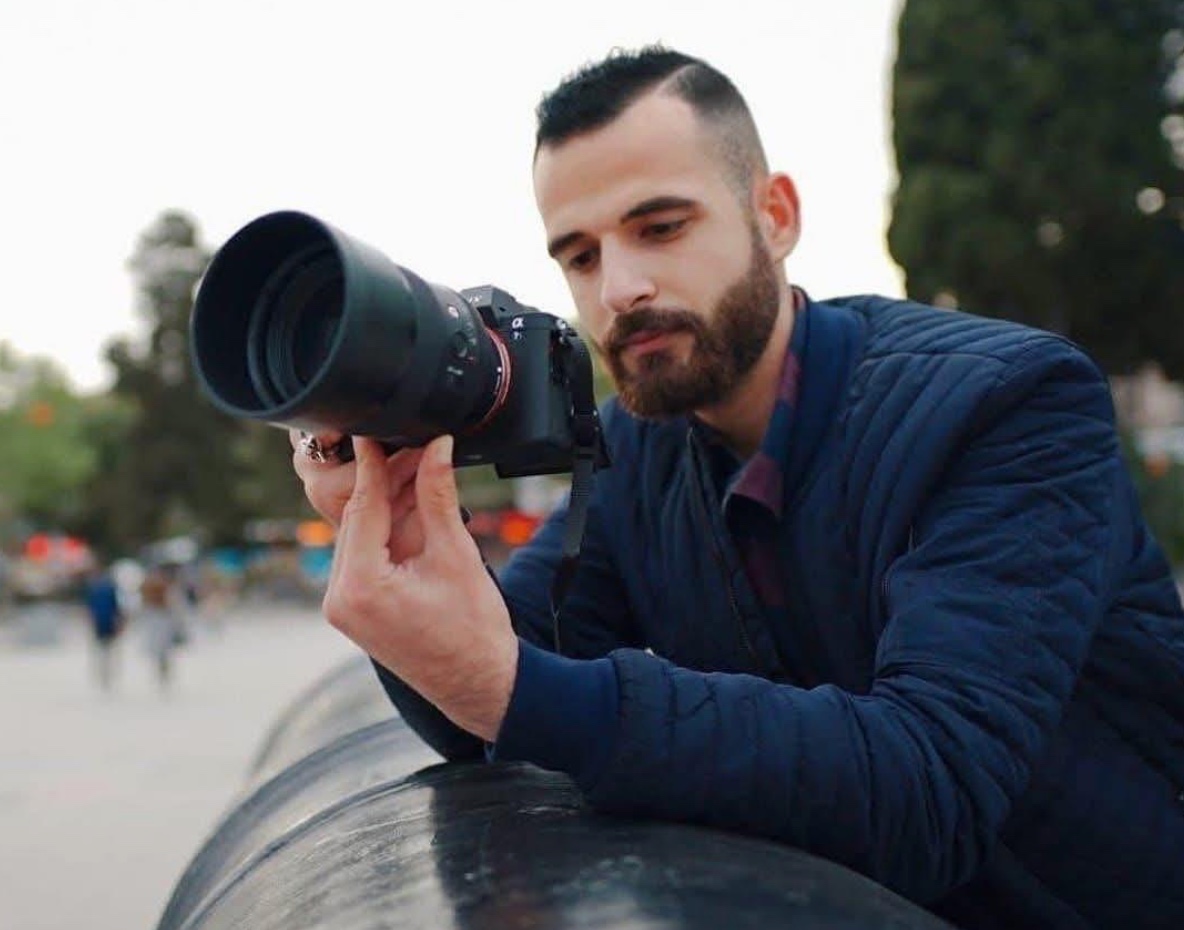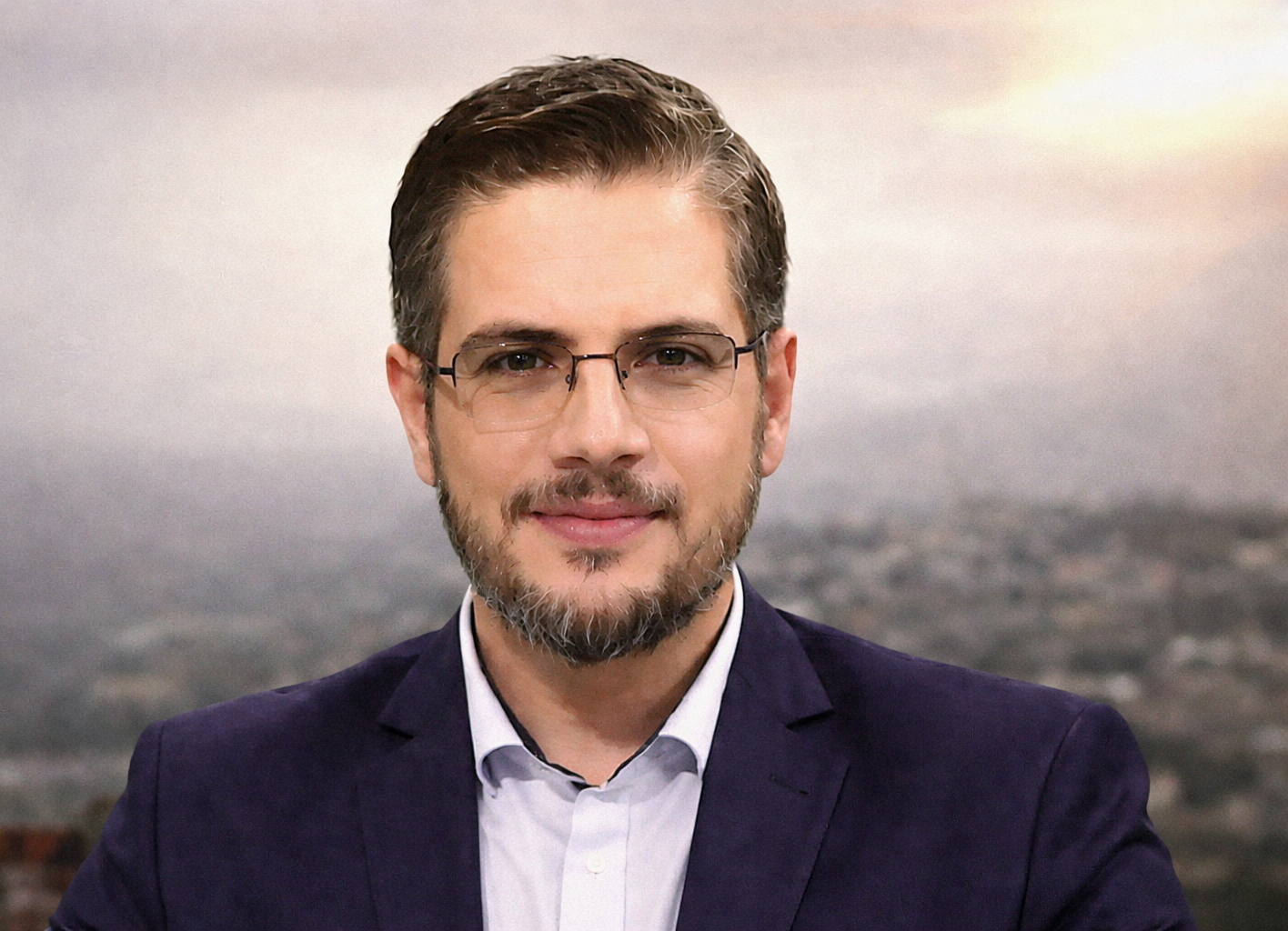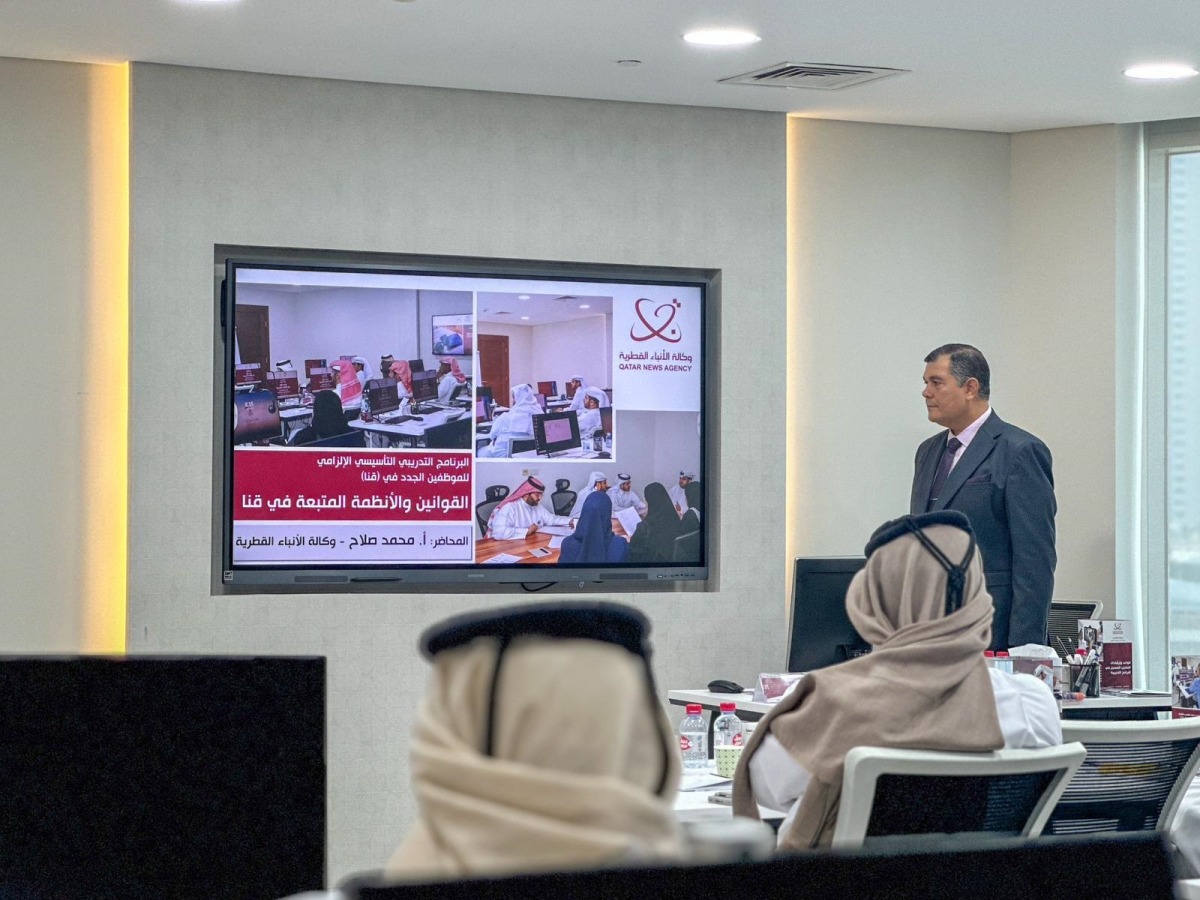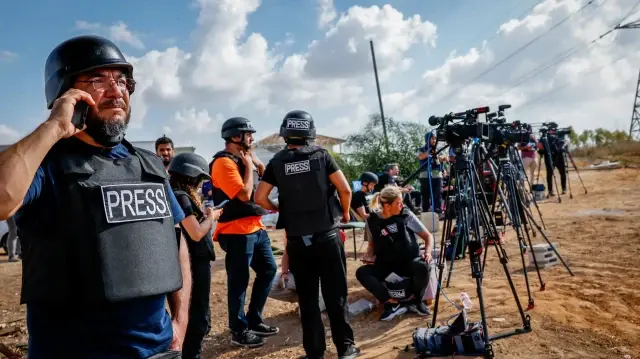
Trump, Leaks, and Threats: The Iran Intelligence Clash
June 30, 2025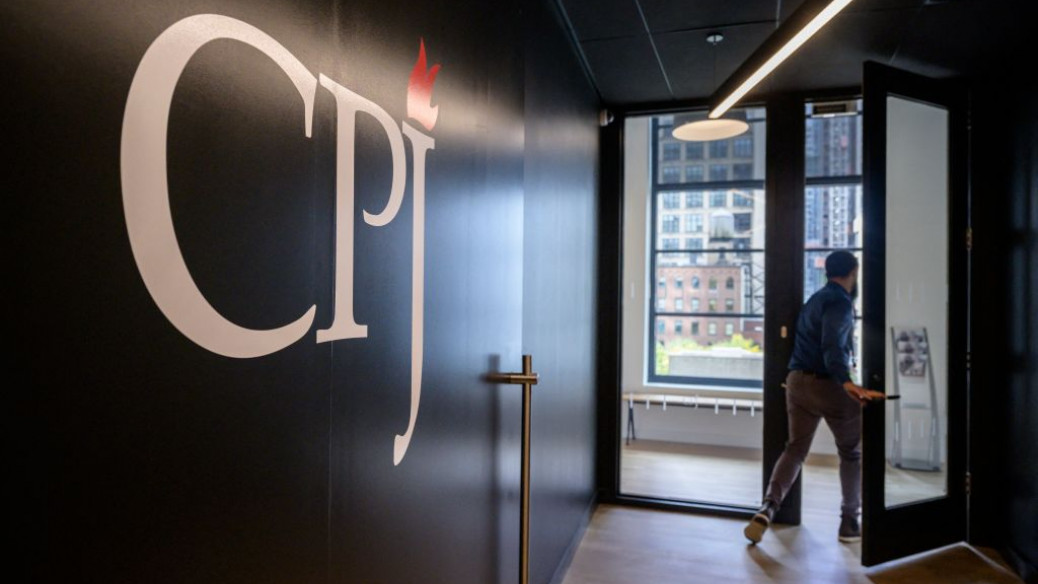
Muzzled in Damascus
July 1, 2025June 30, 2025 – Palestine –
Palestinian photojournalist Ismail Abu Hatab was killed in an Israeli airstrike that targeted the Al-Baqa café along Gaza City’s beachfront. He was 32 years old. Known for his sharp eye and dedication to documenting life under siege, Abu Hatab became one of the latest casualties in a war that has increasingly turned journalists into frontline targets.
That afternoon, the café was crowded with civilians—many seeking a brief respite, charging their phones, or connecting to scarce internet. Without warning, an airstrike tore through the area, killing at least 30 people and injuring dozens more. Among the rubble lay Abu Hatab, his camera shattered beside him. Photos later showed his grief-stricken mother kneeling over his lifeless body at Al-Shifa Hospital, a haunting image that now encapsulates the cost of telling the truth in Gaza.
Abu Hatab’s death was not an isolated tragedy but part of a broader and devastating pattern. According to the International Federation of Journalists, at least 171 journalists and media workers have been killed since the war began, making Gaza the deadliest place on earth for members of the press. Many, like Abu Hatab, were identified as journalists, carrying equipment and wearing press vests. Despite international protections enshrined in humanitarian law, they are increasingly being killed while reporting from civilian zones.
Friends and colleagues described Abu Hatab as fearless, compassionate, and committed to bearing witness. He often ventured into dangerous areas to capture stories the world might otherwise ignore. His photographs revealed not only destruction but also dignity—children playing in rubble, families clinging to hope. In a conflict flooded with propaganda, he offered clarity.
The killing of Ismail Abu Hatab is more than a loss to journalism—it is a wound to the truth itself. He died doing what he loved, giving voice to the voiceless. In Gaza, where cameras are often the last remaining witnesses, silencing one journalist means blinding the world just a little more. Abu Hatab’s final assignment was also his most powerful: a reminder that truth is under fire, and those who seek it are paying the ultimate price.
Reference –

